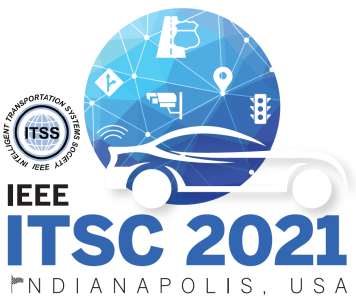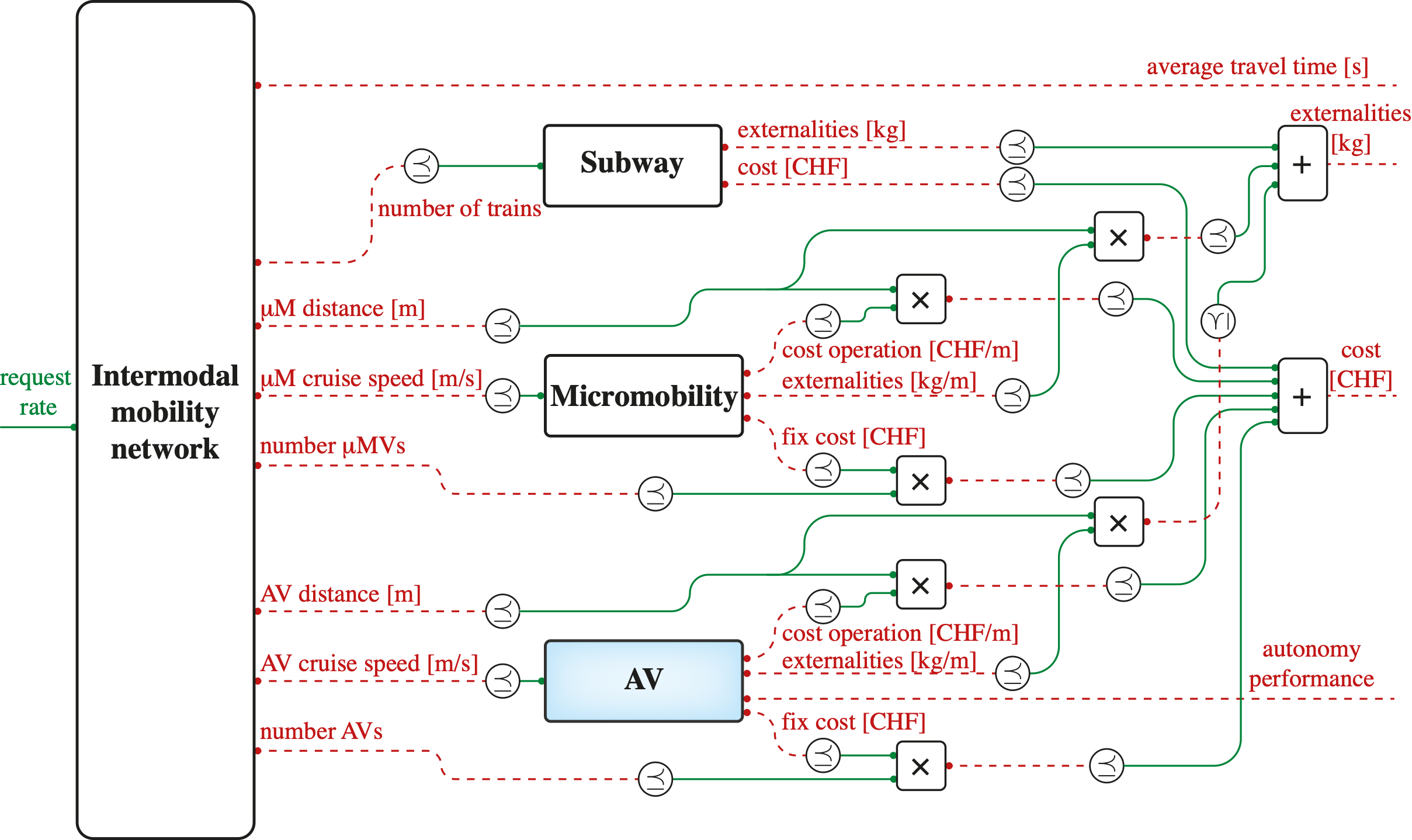Mobility System Co-design
Mobility systems are highly complex socio-technical systems
Best paper award

external page Game Theory to Study Interactions between Mobility Stakeholders at the 24th IEEE International Conference on Intelligent Transportation Systems
Project description
Increasing urbanization and exacerbation of sustainability goals threaten the operational efficiency of current transportation systems and confront cities with complex choices with huge impact on future generations. At the same time, the rise of private, profit-maximizing Mobility Service Providers leveraging public resources, such as ride-hailing companies, entangles current regulation schemes. The design of future mobility solutions (autonomous vehicles, micromobility solutions, etc.) and the design of the mobility systems they enable are closely coupled.
Indeed, knowledge about the intended service of novel mobility solutions would impact their design and deployment process, whilst insights about their technological development could significantly affect transportation management policies. This calls for tools to study such complex socio-technical problems.
In this project we want to co-design future mobility systems all the way from the policies the city can design to the embodied intelligence in autonomous vehicles, leveraging a monotone theory of co-design and tools from game theory.
Through various case studies, we formulate an approach which allows one to solve heterogeneous problems, unifying different modeling techniques and promoting interdisciplinarity, modularity, and compositionality.
Dyn. Systeme u. Regelungstechnik
Sonneggstrasse 3
8092
Zürich
Schweiz
